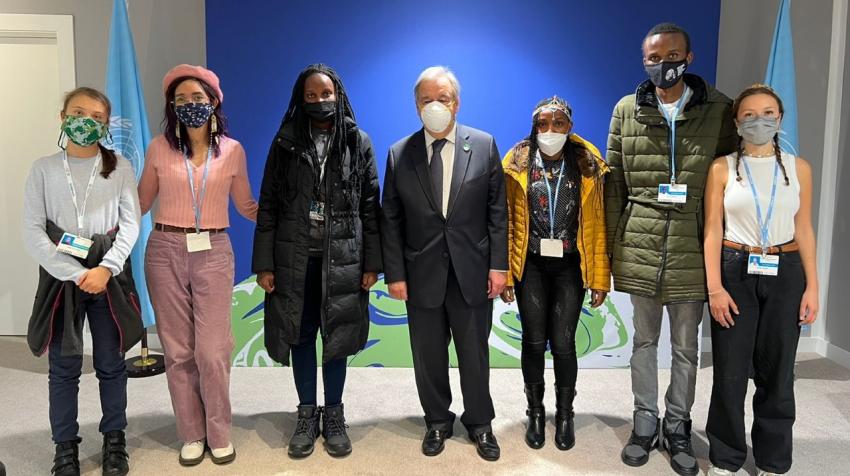A different tone
The second day of the World Leaders Summit at COP26 had a decidedly different tone, with much of the focus moving from the vast plenary room, where speeches continued, to side events that announced new actions. Bank of America CEO Brian Moynihan said his bank would mobilize $100 billion a year in climate financing. Ecuador said it was expanding the Galapagos marine nature preserve by 60,000 square miles. Major initiatives were launched to reduce methane and slow deforestation.
Less methane, less heating
The European Union and the United States headlined a new pledge to reduce methane by 30 percent by 2030. The potent greenhouse gas is generated primarily by fossil fuel use, landfills and agriculture.
EU head Ursula von der Leyen said that while achieving net-zero emissions by 2050 requires big structural change, fast action to cut emissions now should include methane as “the lowest hanging fruit”. US President Joe Biden called the new initiative “a game-changer” and an enormous opportunity to create jobs. He described new rules in the United States to address methane leaks from pipelines and work with farmers and ranchers on reductions.
A total of 105 countries, including 15 major emitters such as Argentina, Brazil, Canada, Nigeria and Viet Nam, have signed the pledge. It covers up to 40 per cent of global methane emissions and 60 per cent of global GDP. It could potentially shave as much as half a degree from global warming.
More forests – the lungs of our planet
Many initiatives have sought to reduce deforestation over the last decade, with not always encouraging results. Recognizing that new, reinvigorated action is needed to halt and reverse forest loss and land degradation by 2030, 114 leaders endorsed a new plan backed by $12 billion in public and $7.2 billion in private funding. It includes Brazil, Canada, China, Colombia, the Democratic Republic of the Congo, Indonesia and the Russian Federation, which together have 85 per cent of the world’s forests. Each year, they absorb around a third of global carbon dioxide released from burning fossil fuels. CEOs from more than 30 financial institutions, including Aviva, Schroders and Axa, committed to end investment in activities linked to deforestation.
UN Secretary-General António Guterres tweeted that “signing the declaration is the easy part. It is essential that it is implemented now for people & planet”.
Tuntiak Katan, a coordinator for the Global Alliance of Territorial Communities, warned that forest action hinges on working with indigenous peoples. “Science is finally recognizing that indigenous populations are the best protectors of rainforests and of biodiversity. We are here to tell Glasgow, the world leaders, that the indigenous populations are here to make a pact for life because there is no more time. Don’t make political promises that you are not going to keep."
Better infrastructure for small islands
People in countries paying the biggest price for climate change have contributed the least to the problem. Acknowledging the precarious situation of small island developing States, the leaders of Australia, Fiji, India, Jamaica, Mauritius and the United Kingdom kicked off the “Infrastructure for Resilient Island States” initiative. Its goal: Provide technical and financial services to make the infrastructure of island states resilient to climate change and disaster events.
Jamaican Prime Minister Andrew Holness said he welcomed the focus on small islands. “We are on the frontline of the climate crisis,” he said. “A single disaster can derail the entire budget of a small island developing State and set its economy back by years.”
Fiji’s Prime Minister Frank Bainimarama noted, “It takes resources to build resilience, but we either pay the debt now or pay a much higher price in the aftermath of climate-driven devastation.”

